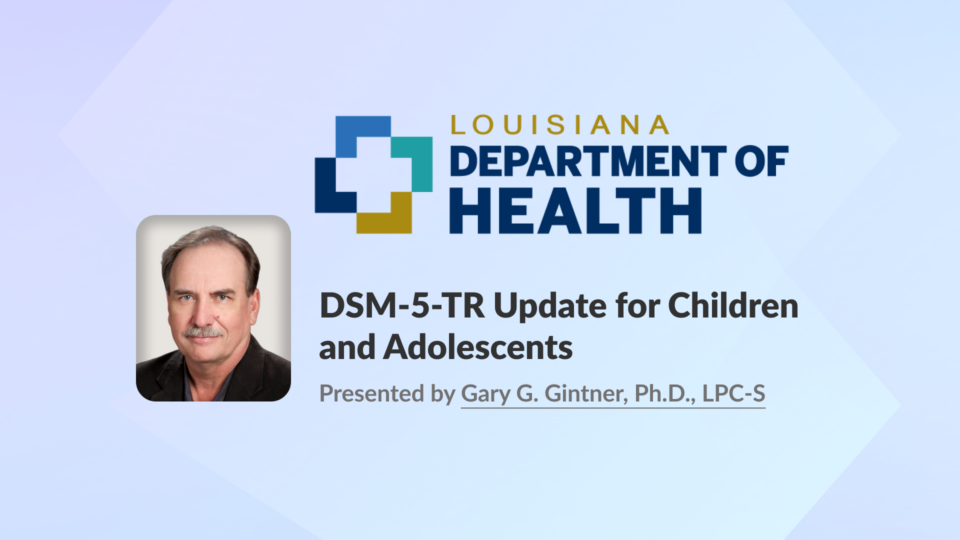
DSM-5-TR Update for Children and Adolescents
Information
Date & Time
-
-
Learning Objectives
Participants will be able to:
-
Describe at least three new codes added to DSM-5-TR.
-
List at least five major changes in the manual.
-
Describe at least three treatment update recommendations discussed.
-
State at least three implications of these changes in everyday practice.
Educational Goal
The educational goal of this workshop is for participants to identify and understand implications of changes made to the DSM-5-TR.
Description
DSM-5-Text Revision (TR) introduces a number of changes and additions that reflect a significant update to the manual. These include changes to background information, modifications in the criteria sets, and updated ICD-10-CM codes implemented since the publication of DSM-5 in 2013. There is one new disorder added, Prolonged Grief Disorder, as well as two new codes, Suicidal Behavior and Nonsuicidal Self-Injury. The program reviews changes for each of the major diagnostic groups and updates current treatment recommendations relative to applications with children and adolescents. Special attention is paid to developmental, cultural, and family related factors that impact symptom presentation, course and treatment selection. Case examples and diagnostic exercises are used throughout the program to help participants master the use of DSM-5-TR and improve diagnostic accuracy.
Target Audience
- Counselor
- Marriage & Family Therapist
- Psychologist
- Social Worker
- Substance Use Disorder Professionals
Presenters
Gary G. Gintner, Ph.D., LPC-S is a retired professor and former program coordinator of the Counseling Program at Louisiana State University. He has published numerous articles on topics such as DSM-5, differential diagnosis, mood disorders, substance abuse and best practices for the treatment of psychiatric and substance use disorders. He is a nationally recognized trainer on the DSM and best practice guidelines. His forty years of clinical experience includes inpatient care, substance abuse counseling, and outpatient mental health. He is a Fellow of the American Counseling Association and was a former President of the American Mental Health Counselors Association (AMHCA).
Financially Sponsored By
- Louisiana Department of Health - Office of Behavioral Health
